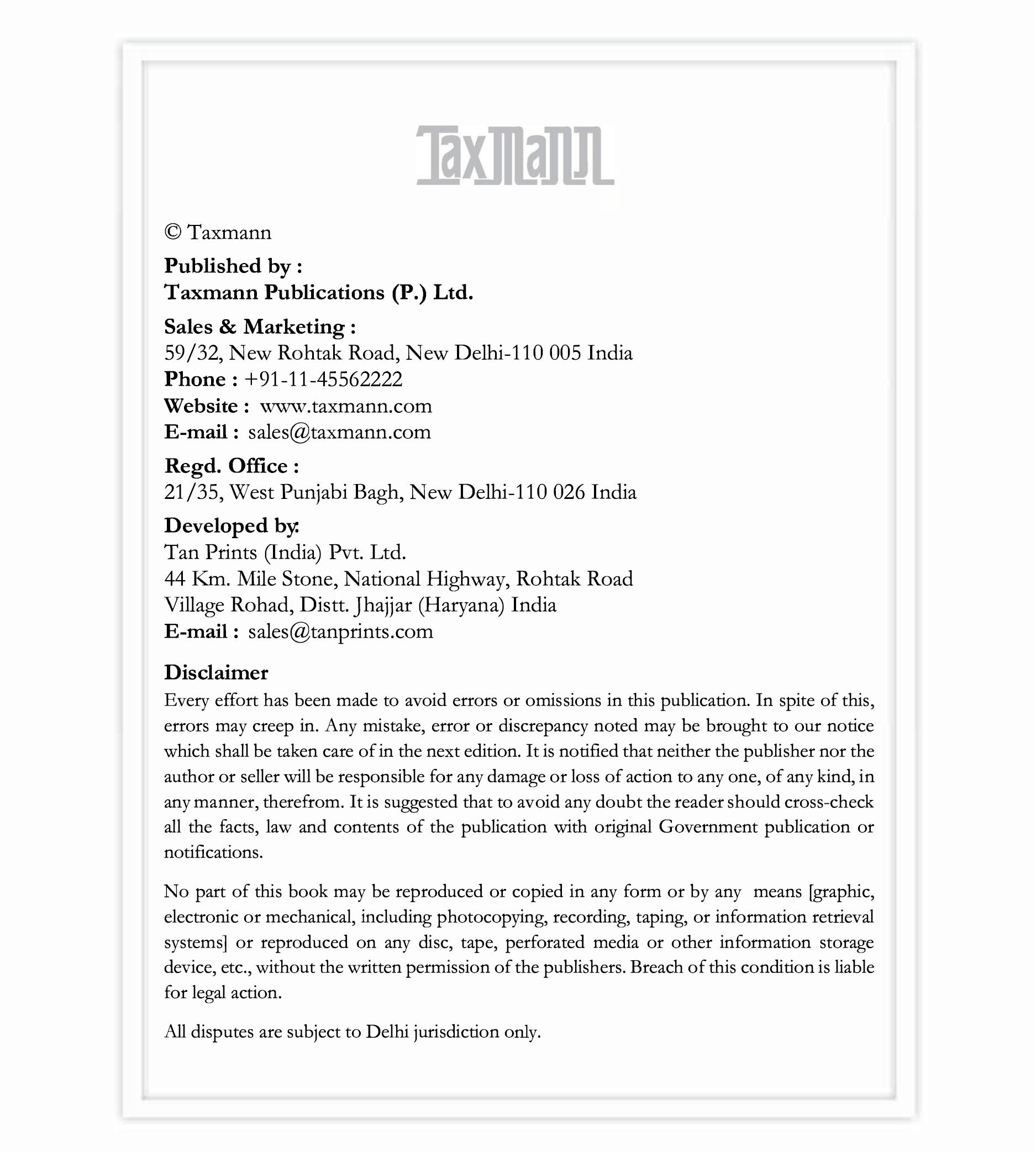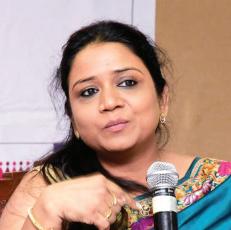







1. Introduction
2. Meaning of ‘Social Stock Exchange’ 3 Background and Rationale
4. Expansion of the Scope and Definition of ‘Not-for-Profit Organizations’ (NPOs)
5. Substituting ‘Social Impact Assessment Firm’ with ‘Social Impact Assess ment Organisation’ to Broaden Participation
6. Enabling NPOs to Register With SSEs for Up to 2 Years Without Raising Funds
7. Broadening the List of Eligible Activities for Social Enterprises to Ensure Greater Participation
8. Expansion of Target Segments for Social Enterprises to Include Cultural and Environmental Ecosystem Entities
9. Proposal to Ensure At Least 67% of Activities of NPOs and FPEs Qualify as Eligible ‘Cultural or Environmental Activities’
10. Inclusion of ‘Project/Programme Proposal’ for Raising Funds via Zero Coupon Zero Principal Instruments
11. Enhancement of Disclosure Requirements for NPOs Regarding Registra tion Certificates and Financial Statements
12. Modification of Provisions on SSE Framework to Include Additional De tails w.r.t ‘Annual Impact Report’
13. Conclusion

In order to transform and enhance the impact of the social sector in India, the Securities and Exchange Board of India (SEBI) issued a consultation paper on January 20th, 2025, proposing a review of the framework for the Social Stock Exchange. The objective of this paper is to seek public comments on various proposals put forward by the Social Stock Exchange Advisory Committee (SSEAC). These proposals aim to improve the framework, simplify the process for social enterprises to access capital, attract investors and enhance transparency. This initiative is designed to strengthen the social sector, enabling not-for-profit and for-profit entities to contribute to India’s sustainable development goals. Comments may be submitted by February 10th, 2025.
A ‘social stock exchange’ (SSE) is a platform where social enterprises/organisations can raise funds from the public. Just like equity, commodities, derivatives and small and medium-sized enterprises (SMEs), the social stock exchange will be a segment of the stock exchange. Organisations listed on the SSE can be ‘For-profit Social Enterprises’ (FPEs) and ‘Not-for-Profit Organizations’ (NPOs).
The regulatory framework for SSE was prescribed by the SEBI via amendments dated July 25th, 2022, to the SEBI (Issue of Capital and Disclosure Requirements) Regulations, 2018, SEBI (Listing Obligations and Disclosure Requirements) Regulations, 2015 and SEBI (Alternative Investment Funds) Regulations, 2012.
In a move to transform the landscape for social enterprises in India, the Securities and Exchange Board of India (SEBI) proposed a comprehensive review of the Social Stock Exchange (SSE) framework on January 20th, 2025. Accordingly, SSEAC recommended changes to the SEBI (ICDR) and LODR norms.
‘Not for Profit Organizations’ play an important role in the Social Stock Exchange as they use it as a platform to raise funds for their social initiatives. By listing on SSE, NPOs gain visibility and connect with investors focused on supporting social causes, ensuring transparency and accountability in their operations.
As per the current ICDR norms, a ‘Not for Profit Organization’ (NPO) is defined to include entities such as charitable trusts registered under the Indian Trusts Act, 1882, public trust statutes of the relevant state, charitable societies registered under the Societies Registration Act, 1860 or companies incorporated under Section 8 of the Companies Act, 20131.
However, certain gaps have been identified –
(a) The Indian Trusts Act, 1882, is meant for private trusts and in states where there is no separate act for Trusts, they are simply registered under the Indian Registration Act, 1908.
(b) Companies registered under Section 25 of the Companies Act, 1956 are equivalent to those under Section 8 of the Companies Act, 2013, but are not explicitly included in the current definition.
To resolve these issues, SSEAC proposed to expand the definition of NPOs. The updated definition will also include –
(a) Trusts registered with the Sub-Registrar under the Indian Registration Act, 1908, in states where no Trust Act exists.
(b) Charitable societies registered under state-specific society registration laws.
(c) Companies registered under section 25 of the Companies Act, 1956.
Comments
This proposal to expand the definition of NPOs to include additional entities will help create a more inclusive platform on the SSE. By broadening the scope to include various other entities, more NPOs will have the opportunity to raise funds, gain visibility and attract investment for their social initiatives.
‘Social Impact Assessment Firm’ helps evaluate the social effects of business activities, ensuring that companies operate in a responsible and sustainable way. This is important for supporting the SSE initiative, which encourages businesses to focus on social and environmental responsibility.
Under the current ICDR norms2, the term ‘Social Impact Assessment Firm’ refers to an entity that has employed a Social Impact Assessor and has a track record of a minimum of 3 years for conducting social impact assessment.
The word ‘firm’ suggests a traditional audit firm that is a for-profit entity. This may not appeal to social impact assessment institutions in the development sector that are notfor-profit entities. Further, there is a shortage of social impact assessment organisations (SIAOs) with 3 years of experience.
The SSEAC recommended replacing the term’ firm’ with ‘organisation’ to allow more development sector organisations to get involved with self-regulatory organisations (SROs). Further, SSEAC recommended permitting SIAOs that have full-time employment at least two Social Impact Assessors, each with a minimum of 3 years of experience for empanelment by SROs.
Comments
By replacing “firm” with “organisation,” the proposal aims to increase the involvement of a wider range of development sector entities in social impact assessments. This change will make it easier for more qualified organisations to join self-regulatory organisations (SROs), helping address the shortage of experienced Social Impact Assessment Organisations (SIAOs). The proposed norms will support responsible and sustainable business practices, aligning with the goals of the SSE initiative.
SSEs provide a vital platform for NPOs, enabling them to raise funds for social initiatives while ensuring transparency and accountability.
As per the existing ICDR norms3, an NPO must mandatorily seek registration with an SSE before raising funds through it. Further, an NPO may choose to register with or without raising funds.
Several NPOs register with SSEs but do not progress to listing, nor do they renew the registration due to the high cost of annual reporting, including the social impact assessment of significant programmes. SSEAC has recommended that NPOs be allowed to register with an SSE for a total of 2 years without raising funds or for such duration as may be specified by the Board.
Comments
The proposed norms aim to provide greater flexibility for NPOs by allowing them to register with the SSE for up to two years without raising funds. This change is intended to reduce the burden of annual reporting and social impact assessments, encouraging more NPOs to register without the immediate need for fund-raising or listing.
The term’ Social Enterprise’ means either a Not for Profit Organization or a For-Profit Social Enterprise that meets the eligibility criteria specified in this Chapter4
The current ICDR norms5 provides a list of activities for an entity to be eligible as a Social Enterprise. The list includes eradicating hunger, poverty, malnutrition, promoting education, protection of national heritage, art and culture etc. SSEAC has recommended making the list of eligible activities more inclusive and broader to include the following –
The current provisions do not clearly specify whether disadvantaged segments like women, children, the elderly, the disabled, and the destitute are included in welfare activities. The proposal is to amend the regulations to explicitly include the welfare of these groups under eligible activities.
Education alone cannot ensure employability without incorporating vocational and soft skills. Additionally, the term “livelihood” is repeated in two different thematic areas, leading to redundancy. The proposal is to include vocational skills in the eligible activities and consolidate references to “livelihood” under one thematic area.
The existing framework omits important aspects such as natural ecosystem conservation, pollution control, and sustainable lifestyle education. Wildlife conservation is addressed, but domestic and vulnerable animals are excluded. The proposal is to broaden the scope to include natural ecosystems, pollution control, sustainable lifestyle education, and the welfare of domestic and vulnerable animals.
The focus is limited to preserving national heritage, neglecting contemporary and local heritage. The proposal is to expand the eligible activities to include the promotion and education of art, culture, and all forms of heritage beyond national monuments.
The phrase “training to promote” restricts the scope of activities. It excludes essential areas like providing facilities for Paralympic and rural sports and supporting talented athletes. The proposal suggests rewording it to “promoting” sports and includes a broader scope of support activities, such as facilities, cultural promotion, and athlete development.
Comments
The proposed amendments aim to make the eligible activities more inclusive and better aligned with the overarching goals of addressing social and environmental challenges effectively. These changes will ensure that the regulations convey their intended purpose clearly and comprehensively.
Under the existing norms6, an entity qualifies as a ‘Social Enterprise’ only if it targets underserved or less privileged population segments or regions that are underperforming in development priorities set by the Central or State Governments.
The current provisions, however, do not explicitly cover eco-centric and cultural projects, thus creating an entry barrier for organisations focused on environmental and cultural initiatives, as they fall outside the existing eligibility criteria.
To address this, the SSEAC has recommended expanding the target segment to explicitly include environmental and cultural ecosystem entities, in addition to social entities. This adjustment will better align the framework with broader sustainability and cultural preservation goals.
Comments
The proposed norms aim to expand the definition of Social Enterprises to include environmental and cultural ecosystem entities. This ensures that organisations working on sustainability and cultural preservation are recognised and supported, creating a more inclusive framework that addresses diverse development priorities.
The current norms7 require Social Enterprises to ensure that at least 67% of their activities qualify as eligible activities targeting underserved populations. Compliance is measured using a three-year average of either revenue, expenditure, or total customer base directed toward these activities.
However, the existing framework presents challenges for Non-Profit Organizations (NPOs). The exchange requires NPOs to provide a certificate from a Chartered Accountant confirming compliance. Moreover, data on the average of revenues is irrelevant to NPOs and information regarding average expenditure is not easily verifiable from financial statements. 6
Additionally, the term “target population” primarily refers to human beneficiaries, thereby excluding environmental and cultural projects. This exclusion creates a significant barrier for initiatives focusing on ecosystems or cultural heritage to qualify as Social Enterprises.
The SSEAC has recommended that For-Profit Social Enterprises (FPEs) or Not-for Profit entities, where the annual audit report and IT Return for the latest Assessment Year indicate that the organisation derives more than 20% of its revenue from business income in the latest annual year, must ensure at least 67% of its activities, qualify as eligible social/ environmental/cultural activities. These activities must be shown through one or more of the following criteria -
(a) At least 67% of the immediately preceding 3-year average of revenues comes from providing eligible social/environmental/cultural activities to target entities.
(b) At least 67% of the immediately preceding 3-year average of expenditure comes from providing eligible social/environmental/cultural activities to target entities.
(c) At least 67% of the entities must benefit from the eligible activities. The term ‘Entities’ means things, articles, individuals, bodies, persons, people, creatures.
The proposed changes expand the scope of eligible activities to include social, environmental and cultural initiatives under the 67% requirement. The adjustment aims to promote a wider range of impactful projects especially those focused on environmental and cultural preservation, aligning with broader societal goals.
A ‘Zero Coupon Zero Principal Instrument’ (ZCZP) is a financial instrument through which a not-for-profit organisation can raise funds that are listed on the social stock exchange.
Para 1B of the SEBI Circular outlines the minimum initial disclosure requirements for NPOs to raise funds through Zero Coupon Zero Principal (ZCZP) instruments.
Currently, the Circular only covers “Disclosure Requirements for raising funds” and does not specify any provision for the “Project/Program Proposal” for listing or raising funds. Preparing a ‘Project/Programme Proposal’ is an essential aspect that must be disclosed to the applicants along with the initial disclosures.
Accordingly, the SSEAC has recommended including a “Project/Programme Proposal” along with the minimum initial disclosures for raising funds on the Social Stock Exchange through ZCZP instruments.
Comments
Including the ‘Project/Programme Proposal’ along with the minimum initial disclosures for raising funds through ZCZP instruments will enhance transparency and provide potential investors with a clearer understanding of the initiative. This adjustment ensures that NPOs disclose critical details about their projects or programs, strengthening the fund-raising process on the SSE.
Under the current LODR norms8, NPOs either registered with the SSE or raising funds through the SSE must submit annual disclosures covering general, governance, and financial aspects. These provisions ensure that NPOs provide basic transparency regarding their operations, financials, and governance structures.
The existing provisions of the Circular, along with the recommendations of SSEAC, are as follows -
Currently, NPOs are required to disclose details regarding the Organisation’s registration certificate and other licenses and certifications as per sections 12A, 80G of the Income Tax Act, FCRA, and GST etc.
However, SSEAC has recommended expanding the governance disclosures to include more detailed information about the NPO’s legal status and credentials. This includes specifying the type of registration (e.g., Trust, Society, Section 8 Company), providing registration numbers, and indicating the validity of these certificates.
Additionally, SSEAC suggests including key identification details such as the Permanent Account Number (PAN), GST Registration No., if any, FCRA Number, etc. This would ensure greater clarity and provide stakeholders with a comprehensive view of the NPO’s legitimacy and operational framework.
Under the current requirements, NPOs must submit their financial statements along with program-wise fund utilisation for the year. SSEAC has recommended including more detailed financial disclosures. These include a full set of financial statements, such as the balance sheet, income and expenditure statement, and cash flow statement, along with supporting schedules and notes on accounts.
Further, NPOs must submit copies of their Income Tax Returns, FCRA filings (if applicable), and annual returns filed with the relevant regulatory authorities such as the Registrar of Companies or the Charity Commissioner.
Also, to improve transparency and accountability, SSEAC recommended including a copy of Form 10B/10BB audit report filed with the Income Tax Department, in addition to the auditors’ report.
SSEAC suggests that certain disclosures, such as the NPO’s vision, performance review processes, risk mitigation plans, remuneration policies, and grievance mechanisms, should not be mandatory for NPOs raising funds of less than Rs. 1 crore. This would help reduce the compliance burden on smaller NPOs while ensuring a baseline level of transparency.
The proposed changes aim to enhance clarity and accountability in the reporting process. By specifying additional details related to the NPO’s registration, certifications, and financials, SSEAC seeks to provide exchanges and investors with comprehensive and verifiable information about the NPO’s operations.
This would help in better tracking and verification of the NPO’s activities and finances, ensuring that only legitimate organisations participate in the SSE framework. Including detailed financial documents, including the Income Tax Return and Form 10B/10BB audit reports, would further reinforce the NPO’s commitment to transparency and good governance.
The current LODR norms9 requires all Social Enterprises (SEs) either registered with or have raised funds through Social Stock Exchanges (SSEs) or Stock Exchanges to submit an Annual Impact Report (AIR). The report must detail the significant activities, programs, or projects undertaken during the financial year.
Further, all social enterprises must submit a duly audited AIR to the SSE within 90 days from the end of the financial year. Now, the SSEAC has proposed the following recommendations to the existing provisions –
Firstly, SSEAC has recommended extending the submission deadline for the AIR to October 31st every year or within such period as may be specified by the SEBI. Additionally, for listed projects, the AIR must be duly assessed by a Social Impact Assessment Organization.
For NPOs that are registered without listing any security, the SSEAC has suggested that the AIR must cover the NPO’s significant activities constituting at least 67% of the organisation’s work. The methodology for determining significance, such as annual expenditure on programs must be explicitly explained.
To address strategic intent and planning, SSEAC has recommended broadening the scope to include cultural challenges alongside social and environmental ones. The term “last year” in reporting has been replaced with “year reported upon” to align with the proposed regulatory amendments.
For monitoring impact metrics, SSEAC has proposed modifying the language to specify that SEs must report “KPI metrics drawn from the Solution Implementation Plan for listed projects.” This change strengthens traceability and aligns the metrics with the project’s planning processes.
Lastly, SSEAC has recommended differentiating between listed and non-listed projects for the assessment of AIRs. For listed projects, the AIR must be assessed by Social Impact Assessors from empanelled organisations. In contrast, non-listed projects may submit self-reported AIRs. This distinction ensures a higher level of scrutiny for projects that are publicly funded or listed, aligning with the regulatory intent.
The recommendations aim to refine the AIR framework, ensuring timeliness, inclusivity, and consistency with broader regulatory amendments. By addressing gaps in reporting and auditing processes, the changes enhance accountability and traceability of impact for Social Enterprises.
In conclusion, the proposed changes to the Social Stock Exchange (SSE) framework mark a significant step toward reshaping India’s social sector. By expanding the definition of NPOs, substituting the social impact assessment firm with social impact assessment organisation, and allowing NPOs to register with SSE for up to 2 years without raising funds, SEBI’s efforts aim to simplify the process for social enterprises and attract a wider pool of investors.
Further, broadening the list of eligible activities for social enterprises and enhancing disclosure requirements for NPOs will ensure greater transparency, accountability and participation. Additionally, the inclusion of projects/programme proposals for raising funds through Zero Coupon Zero Principal instruments will provide new opportunities for social enterprises.
These initiatives will empower both not-for profit entities and for-profit entities to play an active role in driving meaningful social impact and advancing India’s sustainable development goals.


Founded 1972


Evolution From a small family business to a leading technology-oriented Publishing/Product company


Expansion

Launch of Taxmann Advisory for personalized consulting solutions

Aim
Achieve perfection, skill, and accuracy in all endeavour

Growth
Evolution into a company with strong independent divisions: Research & Editorial, Production, Sales & Marketing, and Technology

Future
Continuously providing practical solutions through Taxmann Advisory
Editorial and Research Division
Over 200 motivated legal professionals (Lawyers, Chartered Accountants, Company Secretaries)
Monitoring and processing developments in judicial, administrative, and legislative fields with unparalleled skill and accuracy
Helping businesses navigate complex tax and regulatory requirements with ease

Over 60 years of domain knowledge and trust
Technology-driven solutions for modern challenges
Ensuring perfection, skill, and accuracy in every solution provided
Income Tax
Corporate Tax Advisory
Trusts & NGO Consultancy
TDS Advisory
Global Mobility Services
Personal Taxation
Training
Due Diligence
Due Dilligence
Advisory Services
Assistance in compounding of offences
Transactions Services
Investment outside India
Goods
Transaction Advisory
Business Restructuring
Classification & Rate Advisory
Due Diligence
Training
Trade Facilitation Measures
Corporate
Corporate Structuring
VAT Advisory
Residential Status

Naveen Wadhwa
Research and Advisory [Corporate and Personal Tax]
Chartered Accountant (All India 24th Rank)
14+ years of experience in Income tax and International Tax
Expertise across real estate, technology, publication, education, hospitality, and manufacturing sectors
Contributor to renowned media outlets on tax issues

Vinod K. Singhania Expert on Panel | Research and Advisory (Direct Tax)
Over 35 years of experience in tax laws
PhD in Corporate Economics and Legislation
Author and resource person in 800+ seminars

V.S. Datey Expert on Panel | Research and Advisory [Indirect Tax]
Holds 30+ years of experience
Engaged in consulting and training professionals on Indirect Taxation
A regular speaker at various industry forums, associations and industry workshops
Author of various books on Indirect Taxation used by professionals and Department officials

Manoj Fogla Expert on Panel | Research and Advisory [Charitable Trusts and NGOs]
Over three decades of practising experience on tax, legal and regulatory aspects of NPOs and Charitable Institutions
Law practitioner, a fellow member of the Institute of Chartered Accountants of India and also holds a Master's degree in Philosophy
PhD from Utkal University, Doctoral Research on Social Accountability Standards for NPOs
Author of several best-selling books for professionals, including the recent one titled 'Trust and NGO's Ready Reckoner' by Taxmann
Drafted publications for The Institute of Chartered Accountants of India, New Delhi, such as FAQs on GST for NPOs & FAQs on FCRA for NPOs.
Has been a faculty and resource person at various national and international forums

the UAE
Chartered Accountant (All India 36th Rank)
Has previously worked with the KPMG

S.S. Gupta Expert on Panel | Research and Advisory [Indirect Tax]
Chartered Accountant and Cost & Works Accountant
34+ Years of Experience in Indirect Taxation
Bestowed with numerous prestigious scholarships and prizes
Author of the book GST – How to Meet Your Obligations', which is widely referred to by Trade and Industry

Sudha G. Bhushan Expert on Panel | Research and Advisory [FEMA]
20+ Years of experience
Advisor to many Banks and MNCs
Experience in FDI and FEMA Advisory
Authored more than seven best-selling books
Provides training on FEMA to professionals
Experience in many sectors, including banking, fertilisers, and chemical
Has previously worked with Deloitte
Taxmann Delhi
59/32, New Rohtak Road
New Delhi – 110005 | India
Phone | 011 45562222
Email | sales@taxmann.com
Taxmann Mumbai
35, Bodke Building, Ground Floor, M.G. Road, Mulund (West), Opp. Mulund Railway Station Mumbai – 400080 | Maharashtra | India
Phone | +91 93222 47686
Email | sales.mumbai@taxmann.com
Taxmann Pune
Office No. 14, First Floor, Prestige Point, 283 Shukrwar Peth, Bajirao Road, Opp. Chinchechi Talim, Pune – 411002 | Maharashtra | India
Phone | +91 98224 11811
Email | sales.pune@taxmann.com
Taxmann Ahmedabad
7, Abhinav Arcade, Ground Floor, Pritam Nagar Paldi
Ahmedabad – 380007 | Gujarat | India
Phone: +91 99099 84900
Email: sales.ahmedabad@taxmann.com
Taxmann Hyderabad
4-1-369 Indralok Commercial Complex Shop No. 15/1 – Ground Floor, Reddy Hostel Lane Abids Hyderabad – 500001 | Telangana | India
Phone | +91 93910 41461
Email | sales.hyderabad@taxmann.com
Taxmann Chennai No. 26, 2, Rajan St, Rama Kamath Puram, T. Nagar
Chennai – 600017 | Tamil Nadu | India
Phone | +91 89390 09948
Email | sales.chennai@taxmann.com
www.taxmann.com
Taxmann Bengaluru
12/1, Nirmal Nivas, Ground Floor, 4th Cross, Gandhi Nagar
Bengaluru – 560009 | Karnataka | India
Phone | +91 99869 50066
Email | sales.bengaluru@taxmann.com
Taxmann Kolkata Nigam Centre, 155-Lenin Sarani, Wellington, 2nd Floor, Room No. 213
Kolkata – 700013 | West Bengal | India
Phone | +91 98300 71313
Email | sales.kolkata@taxmann.com
Taxmann Lucknow
House No. LIG – 4/40, Sector – H, Jankipuram Lucknow – 226021 | Uttar Pradesh | India
Phone | +91 97924 23987
Email | sales.lucknow@taxmann.com
Taxmann Bhubaneswar
Plot No. 591, Nayapalli, Near Damayanti Apartments
Bhubaneswar – 751012 | Odisha | India
Phone | +91 99370 71353
Email | sales.bhubaneswar@taxmann.com
Taxmann Guwahati
House No. 2, Samnaay Path, Sawauchi Dakshin Gaon Road
Guwahati – 781040 | Assam | India
Phone | +91 70866 24504
Email | sales.guwahati@taxmann.com